Swastikas in Elevators: Moravian’s Bias Response and Intervention Team Has Their Work Cut Out for Them
It was my third week as a newly-minted freshman Hound when I first encountered what I have come to call the Moravian Bubble. Burrito and soda from the Root Cellar in hand, I stood in the elevator of the HILL staring at a shape no bigger than a playing card carved into the elevator door, seemingly etched in with the point of a knife.
It was a swastika.
Now, this wasn’t the first swastika I’d ever seen; I consider myself a proud American Jew, and people have used the symbol in attempts to irritate me before. But I’d grown up in a Jewish community, and had a strong support system behind me then.
Not this time.
This time I was alone, and nothing reinforces that isolation quite like casually encountering this symbol, the ones your ancestors saw as they suffocated in gas chambers, while returning to your new “home away from home” after a midnight snack run.
This was in 2014. I wish I could say I’ve seen improvement, but reality leaves much to be desired.
On April 8, 2016, the recently-added gender neutral restroom signs in multiple buildings were either stolen or simply forced off the walls. On April 18, 2017, a senior’s art being displayed on South Campus was destroyed with racial slurs defacing the work. There have been too many instances of sexual harassment and assault on Moravian grounds, both reported and otherwise, to list here.
And on Oct. 3, 2017, yet another swastika was found carved into the elevator in the Hall of Science.
There is a disturbing trend to these events, one that is undeniable. Yet I have only ever seen these incidents handled as isolated events, brief ripples in an otherwise steady current. The 2014 swastika was simply sanded and painted over, only to be carved again not two weeks later. The restroom signs were replaced with only an email passively condemning those responsible. The vandalism of the art was addressed, again, in a matter of a couple of emails sent out to the campus, labelled as a hate crime, and handled fairly quietly. No one spoke about it.
Ask most students on campus if they remember any of these incidents or the events surrounding them, and you’ll likely receive a blank stare in return.
This is what I have come to know as the Moravian Bubble. All conflict is brief, all issues “resolved” as quickly as possible and left to fester quietly in the background. The culture has become one of isolation, compartmentalization, and depersonalization. A system has been implemented for addressing these all too frequent injustices, and it has become so routine a practice that it is as dismissible by most at Moravian as a freshman getting locked out during orientation.
Even the script is the same for many of the responses to these situations.
An email is sent out with the subject “TIMELY NOTIFICATION.” “Dear Campus Community,” it reads, going on to detail the events as they would be recorded in the police report: dry, cold, aggressively factual. “We would like to remind all students to lock their doors in the evenings.” “We would like to remind all students to not walk alone late in the evening.” “We wish to remind our community […] hate, discrimination, and prejudice have no place here, or anywhere, and will not be tolerated on Moravian’s campus.” The email always asks those with information to come forward. I have never encountered anyone who has come forward as a result of these emails.
The silent toxicity of these incidents and how they are handled is nothing new to Moravian’s campus, nor to anywhere in our current world. If nothing else, Moravian is a microcosm reflecting the state of America today. The parallels are uncanny, in many cases. For every swastika in an elevator, there’s a horde of white supremacists marching with torches. For every gender neutral restroom sign removed, a new law is passed restricting the rights of the queer and trans community. For every “timely notification” of sexual assault, there’s a Harvey Weinstein.
While it is true that college is intended to be a safe and educational introduction to the “real world” for young adults, that does not mean that it is separate and safe from the injustices running rampant. Clearly, the fear mongering and justification of existing bigotry is seeping into our community and affecting the lives of those around us. Perhaps this, over everything else, is the reason that the new Bias Response and Intervention Team [BRIT] was formed to help address these issues on Moravian’s campus.
The effort is co-chaired by both Liliana Madrid, director of Intercultural Advancement, and Dr. Nicole Lloyd, vice president and dean of students. The webpage for BRIT on the Moravian website states that the team is to be used as a “resource” for the Moravian community to address and raise concerns over bias and discrimination on campus, though the page does not outline any specific courses of action that can be taken through the team.
While it is a gesture of good faith for Moravian College to establish this team as a means of addressing issues of discrimination and injustice on campus, I fear personally that they may be in for more work than they anticipated and inadequately equipped to handle the challenges ahead. I will admit, it is encouraging to see the College taking active steps to address the issues we face, and I have to acknowledge that there is an effort being made.
However, the reality we face today is a complicated and controversial one, and in the face of so much, I worry that the Bias Response and Intervention Team may have bitten off more than they can chew.
Therefore, those of us at Moravian College must do what we can to assist them.
We, as a place of learning and an esteemed educational institution, need to do better. We, as a community, and sometimes as the only support system the members of this community have, need to do better. All of us, as individuals, can do better, and must do better.
I wish I had some sort of concrete solution to share. I desperately want to say I was a perfect role model for how to move forward, but I’m not. I said nothing when my welcome to Moravian was a symbol of hate scratched into an elevator door. I stayed silent because it was easy; I figured someone else would make it their problem.
That’s not how this gets to work anymore. Hate is everyone’s problem. BRIT cannot work alone, and will not work if they are forced to work alone; the real change must happen on a larger scale.
These are trying times. Be active. Be more than a bystander. Call out friends and colleagues who are part of the problem.
Be excellent to each other.
If you or a friend have experienced discrimination or bias on campus, report it to BRIT by either calling the Bias Incident line at (610) 861-1539 or by filling out the online Bias Incident report here.


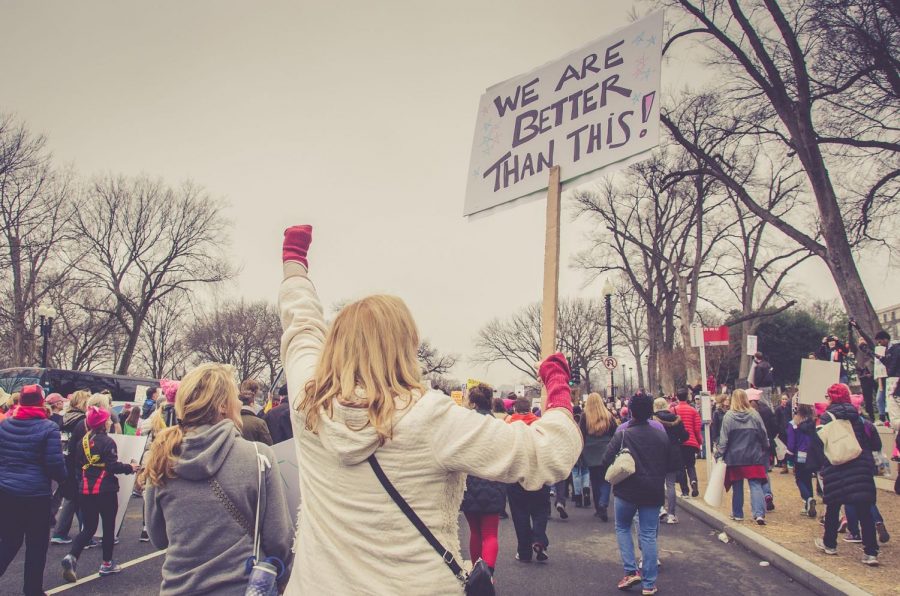
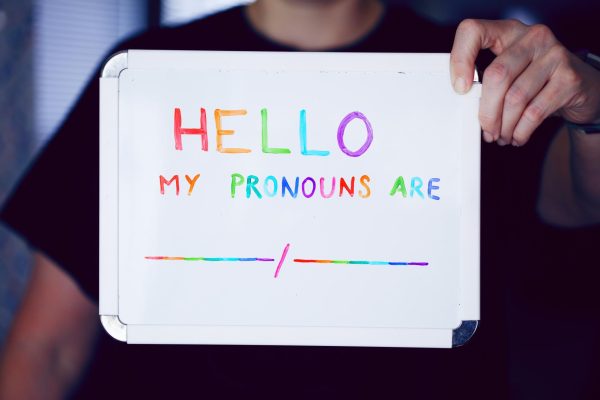
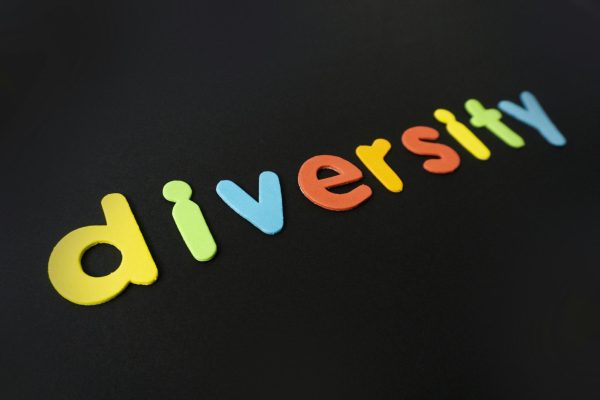

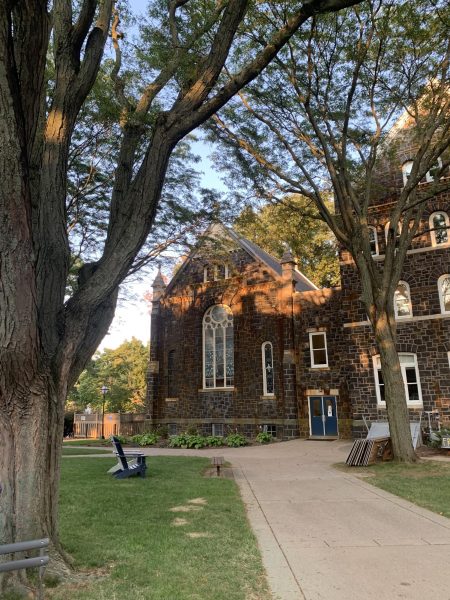
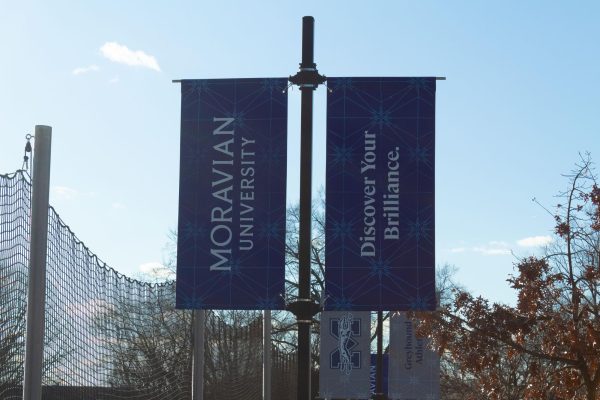

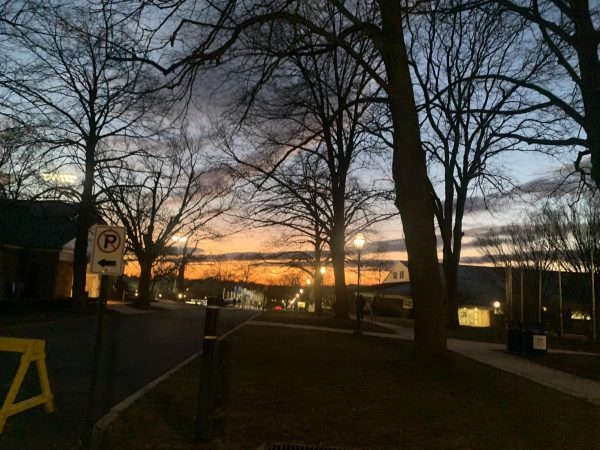
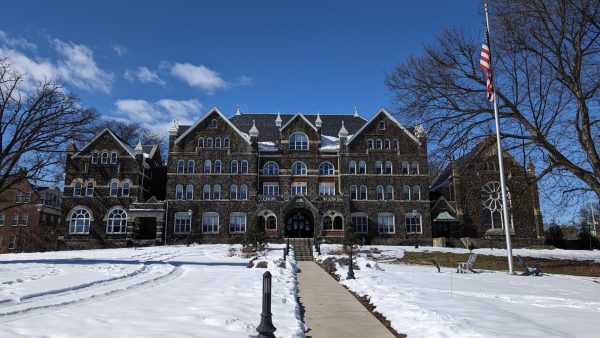
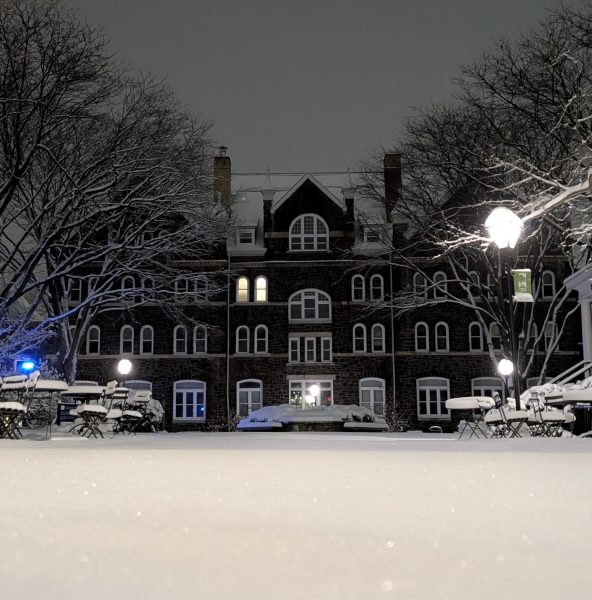
Emily Miller • Dec 15, 2017 at 1:52 pm
Hey Sam! First off, I commend you for putting forth this message. That takes a huge amount of courage. I want to put forth a couple positives that I have experienced at Moravian regarding similar circumstances. Last year, a students art work was vandalized because it depicted more liberal views. The artist posted about it on Facebook asking for any people with information to come forth. Many students (including myself) did so. Our information was given to campus safety who then went out of their way to call us for any scrap of information they could get. They took this very seriously. President Grigsby also released an email harshly condemning this act. (And rightfully so). Other hateful acts have caused an uproar in the college community. Regarding the bathroom signs, I happen to know that this act was under investigation for months. Just because the students do not see actions being taken all the time does not mean that they aren’t happening. I understand what you mean in your article. I understand that not everything is handled perfectly at Moravian College. However, the beauty of our school is that it’s small enough that if you have a concern someone higher up will care. Yet again, it is not perfect, but as you said, it will take more than just the administration to cause the change and boost the awareness you wish to achieve. I loved this article and I’m proud that students like you are willing to step up and call it as they see it! I just wanted to show a slightly different angle. Great job, Sam.
Kin Cheung • Dec 12, 2017 at 4:05 pm
Thank you Sam. This is important work: to raise awareness and make more visible what is outside the bubble. To borrow a phrase from another faculty, the “facade of community” downplays violence faced by marginalized groups.
Liza Larsen • Dec 8, 2017 at 9:49 pm
Keep fighting, Sam and fellow students. Sad to see you’re fighting some of the same injustices we fought when I was a student at Moravian in the 90’s, but so glad to see that you’re still out there fighting.
Kendall martin • Dec 8, 2017 at 1:49 pm
Yes, thank you! Through my daughter we have certainly followed all the events you mention… And others. It is this group of perpetrators who should feel isolated. Here is hoping your article begins the cry of the larger community, a sound of power, concern and standards.
John Black • Dec 8, 2017 at 1:21 pm
Thank you, Sam. Your insights and comments are a challenge and a reminder of the work we must all do to build a community that better reflects our ideals.
Danny Vagnoni • Dec 8, 2017 at 1:17 pm
Sam, this is incisive! Great work – and I have to commend you for writing something that might burst that Moravian Bubble and as a result make some people uncomfortable and angry.
In the latter half of my time at the college, I noticed exactly the trend you’re describing – a pervasive attitude of apathy at best or an intellectually reductionist and bankrupt defense at worst, and the administration not willing to show its teeth and address the problem.
Great job.
Joyce Hinnefeld • Dec 8, 2017 at 10:29 am
Wow. Thank you, Sam, for this incredibly powerful piece. This feels like a possible beginning to me–a way to start, and continue, much-needed conversations at Moravian. Thank you for being this brave voice.